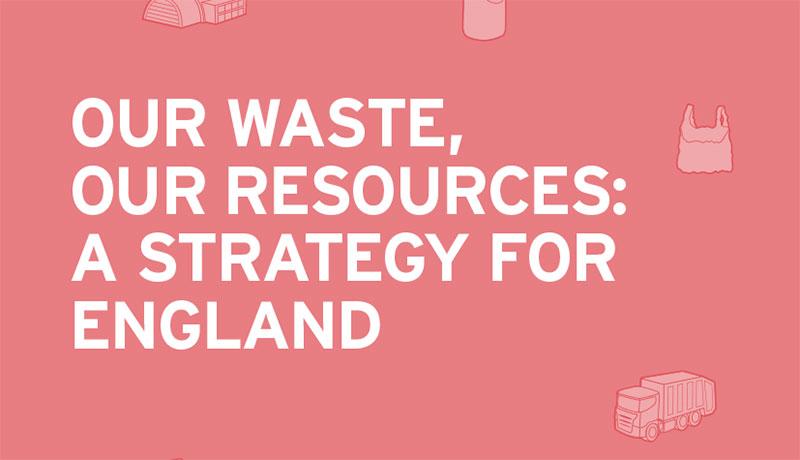The new Resources and Waste Strategy for England published yesterday is the first waste policy intervention for England since 2011. It gives a clearer indication for how the country will take steps to improve how we use – and value – our resources, ultimately moving England towards a more circular economy.
Such a change will be achieved through a fundamental rethink on how consumers, manufacturers and producers dispose of materials. The strategy not only considers materials currently covered by the existing regulations, such as packaging, WEEE and batteries, but also explores the potential for new Extended Producer Responsibility regulations for the likes of mattresses and tyres that are currently challenging to recycle.
A clear prioritisation of existing EPR regulations
Defra states in the strategy that there will be a clear prioritisation for a public consultation on existing EPR regulations that could lead to a significant impact for how England produces, consumes and recovers valuable recyclable materials. With regards to WEEE specifically, Defra comments:
“We will publish a review of the effectiveness of the 2013 WEEE Regulations in 2019 and will seek views by the end of 2020, including on how the existing Regulations can be amended to encourage better designed products. These will incorporate findings from our consultation on EPR for packaging.
The review will explore options for tackling the growing numbers of internet sellers who do not meet their obligations, taking into account the recommendations from the Organisation for Economic Co-operation and Development (OECD) in addressing free-riding in the context of electrical and electronic equipment.
We will review the role of retailers, in particular the Distributor Take-back Scheme as a mechanism designed to fulfil their take-back obligations.”
Delivering the very best solutions
Robbie Staniforth, policy manager at B2B Compliance commented “We welcome Defra’s decision to give the recycling sector the opportunity to feed into a framework that will set the direction of travel for resources and how they’re recycled for at least the next decade – or even the next quarter of a century.
We also welcome the clear timings that the report outlines in the context of its ambitious plans. Rather than opting for a ‘best of a bad bunch’ approach in the consultation, we will seek to deliver the very best solutions for the UK’s WEEE recycling sector. In this way we can adequately meet the vision for a more circular waste economy which the Resource & Waste Strategy indicates is a key priority.”
To discuss how the new resources and waste strategy may affect you, please do not hesitate to contact our team.


